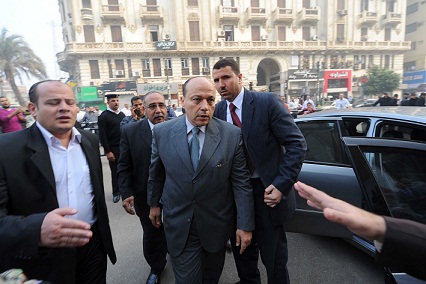
(AFP File photo)
The Egyptian embassy in Washington issued a letter to the editors of the Washington Post, denouncing what it views as a “campaign to undermine the efforts” of Egypt’s President Abdel Fattah Al-Sisi.
The embassy’s letter criticised an editorial piece published by the Washington Post on 16 June entitled “A strongman’s empty promise”. In the article, the US newspaper said Al-Sisi’s administration has driven Egypt to be “more violent and unstable” two years after the military, led by Al-Sisi, ousted the Muslim Brotherhood government.
“Rather than fulfil its professional duty to provide its readers balanced coverage of the President’s first year in office, the Post’s editorial board elected to drop discussing economic developments in Egypt altogether, presumably because they were too positive for the editors’ palate,” the embassy’s letter read.
The embassy accused the newspaper of opting to “blow the terrorists’ horn”, by what it considered promotion of terrorist plots, highlighting the absence of mentioning any economic progress Al-Sisi’s government achieved.
The Post’s editorial revolved around objections to the support given to the Egyptian regime by US president Barack Obama’s administration. It mentioned statistics of victims of terrorist attacks in the first four months of 2015, noting a hike in the numbers, comparing 27 killed in October 2014 to 112 in April 2015. The editorial reasoned the “deteriorating security” through the Egyptian army’s “poor tactics and morale”, and the regime’s “indiscriminate repression”, amongst other reasons.
The editorial stated that the Egyptian authorities target “liberal activists, human rights organisations, critical journalists and anyone else who offends the generals”, along with the Islamist jihadists.
The article focused also on the Muslim Brotherhood being the victim of the largest share of the security crackdown. It highlighted stats released by Egypt’s National Council for Human Rights (NCHR) that cited 1,250 of the 1,800 civilians killed between July 2013 and the end of 2014 were members of the now outlawed group.
The Post quoted Amr Darrag, a leading member of the Brotherhood and head of the executive committee of the group’s now dissolved political wing, the Freedom and Justice party (FJP), as saying: “We are against any kind of violence from a very practical point of view. We don’t want our country to go through what Syria and Iraq have gone through.”
Darrag told the Post in a meeting last week that there has been “slippage” by Egyptian youth toward violence, “admitting there is a real feeling of anger and desire for revenge” among the youth ranks due to the zero-solution strategy of shutting down “all peaceful and political outlets”.
Concern over the meeting with the Brotherhood’s leaders was expressed by the embassy in its letter, undersigned by Egypt’s ambassador to the US Mohamed Tawfik. It also asserted that both the State Department and Congressional leaders refused to meet with the group’s figures “at a time when the organisation is openly calling its followers to violence”.
“When the victims are Westerners, the Post never hesitates to condemn terrorism. But when the victims are people from other cultures, this newspaper is quick to lay the blame on their respective governments. Whether out of sheer hypocrisy, or a misguided belief that appeasing violent groups such as the Muslim Brotherhood will spare the West their wrath, it is a deluded approach that will ultimately backfire,” the letter concluded.


